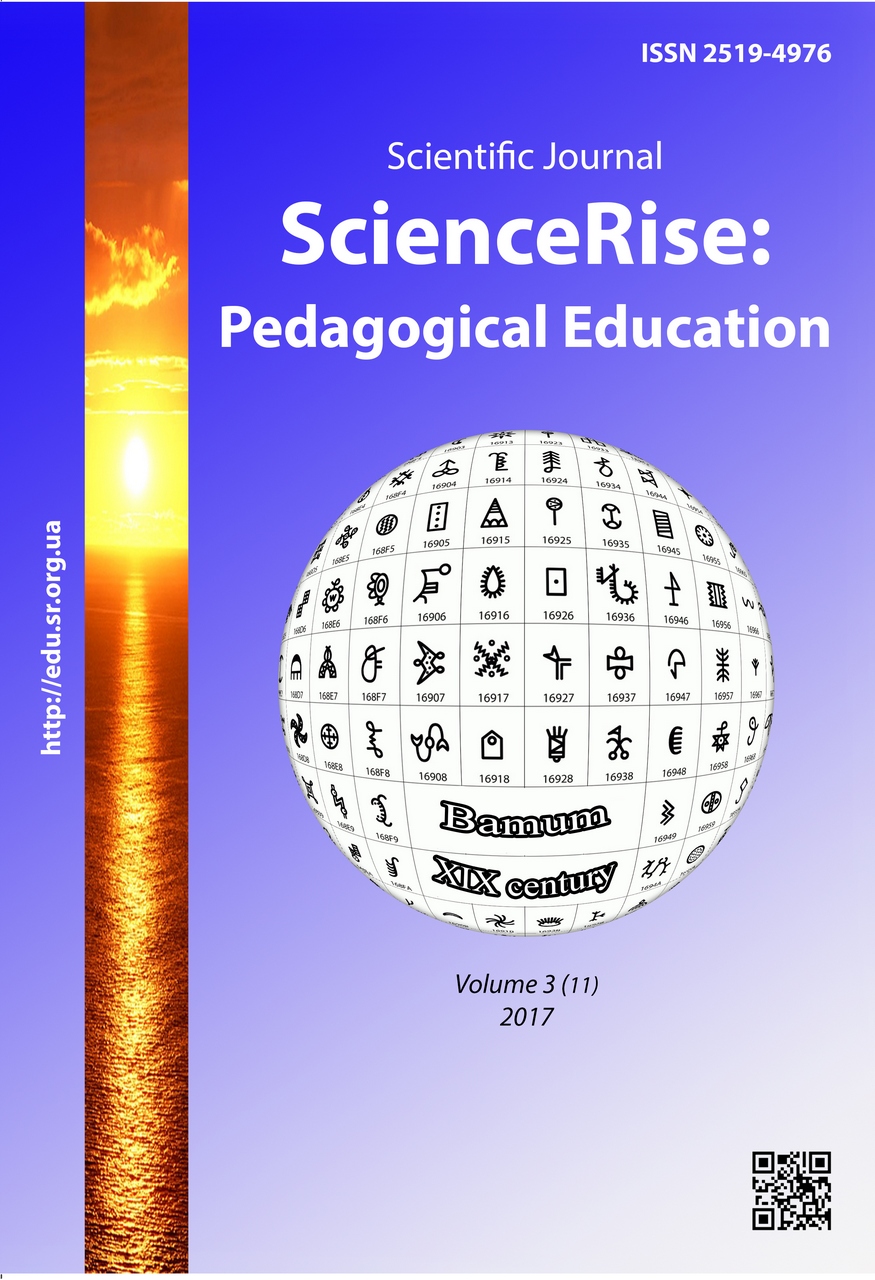Professional training of future specialists in tourism studies in Ukraine under conditions of integration in European educational space
DOI:
https://doi.org/10.15587/2519-4984.2017.97242Keywords:
European integration, future master in tourism studies, methodology, higher education, principles of teaching, professional training, tourismAbstract
In the article the author made a theoretical analysis of the European system of professional training for future masters within the tourism industry. The analysis was focused on the conceptual framework of professional training, the principles of training, and agreed teaching methodology.
The article also analyzed the basic level of documentation required for the relevant standards with which the education system for the future masters of tourism should be based.
The author stated that when deciding the importance of the theoretical analysis of international experience on their training within the tourism field, it should be determined by its importance within the global education system.
Analysis of research into the training of future masters of tourism within higher education showed that currently most importance is given to the practical part of this process.
Proven as timeliness and importance of the research European integration to the national system of higher education in Ukraine.
By optimizing the considered areas of modern Ukrainian system of training future master in tourism in accordance with international and European educational systems.
The study identified some ways to integrate the Ukrainian higher education system into the European model.
The author also proposed a number of ways to improve the entry of Ukrainian education and science into a single joint educational and research area.
In the article the author suggested a number of promising areas for further research themes
References
- Knodel', L. V. (2007). Systema pidgotovky kadriv sfery turyzmu v Nimechchyni. Kyiv: Vyd-vo FPU, 183.
- Sakun, L. V. (2004). Teorija i praktika podgotovki specialistov sfery turizma v razvityh stranah mira. Kyiv: MAUP, 399.
- Fedorchenko, V. K. (2005). Teoretychni ta metodychni zasady pidgotovky fahivciv dlja sfery turyzmu. Instytut pedagogiky i psyhologii' prof. osvity APN Ukrai'ny. Kyiv, 43.
- International Standard Classification of Occupations 2008 (ISCO-08): Structure, group definitions and correspondence tables (2012). International Labour Office. Geneva. Available at: http://www.ilo.org/global/publications/ilo-bookstore/order-online/books/WCMS_172572/lang--en/index.htm
- Senin, V. S. (2003). Organizacija mezhdunarodnogo turizma. Moscow: Finansy i statistika, 400.
- Pelagesha, N. Je. Integracija Ukrai'ny u Jevropejs'kyj sociokul'turnyj prostir: stan ta perspektyvy. Available at: http://old.niss.gov.ua/Monitor/November09/01.htm
- Cypko, V. V. Vyshha osvita Ukrai'ny u procesi integracii' do jevropejs'koi' osvitn'oi' systemy. Available at: http://www.rusnauka.com/14_NPRT_2010/Pedagogica/53660.doc.htm
- Pinchuk, Je. A. (2009). Modernizacija vyshhoi' shkoly Ukrai'ny v umovah integracii' v jevropejs'kyj osvitnij prostir. Formuvannja jevropejs'kogo osvitn'ogo prostoru. Teoriya i praktyka upravlinnya sotsial'nymy systemamy, 2, 112–120.
- Rodionova, E. V., Kolodij, N. A., Konyuhova, T. V. (2013). Analiz zarubezhnogo opyta organizacii dopolnitel'nogo professional'nogo obrazovanija v sfere turizma. Sovremennye problemy nauki i obrazovanija, 2. Available at: https://www.science-education.ru/ru/article/view?id=8992
- Anan'eva, T. N., Kobeleva, O. V., Saharchuk, E. S. (2010). Mezhdunarodnyj opyt obrazovaniya v sfere turizma (na primere Germanii). Servis plus, 4, 59–64. Available at: http://cyberleninka.ru/article/n/mezhdunarodnyy-opyt-obrazovaniya-v-sfere-turizma-na-primere-germanii
Downloads
Published
How to Cite
Issue
Section
License
Copyright (c) 2017 Larisa Beskorovaynaya

This work is licensed under a Creative Commons Attribution 4.0 International License.
Our journal abides by the Creative Commons CC BY copyright rights and permissions for open access journals.
Authors, who are published in this journal, agree to the following conditions:
1. The authors reserve the right to authorship of the work and pass the first publication right of this work to the journal under the terms of a Creative Commons CC BY, which allows others to freely distribute the published research with the obligatory reference to the authors of the original work and the first publication of the work in this journal.
2. The authors have the right to conclude separate supplement agreements that relate to non-exclusive work distribution in the form in which it has been published by the journal (for example, to upload the work to the online storage of the journal or publish it as part of a monograph), provided that the reference to the first publication of the work in this journal is included.







